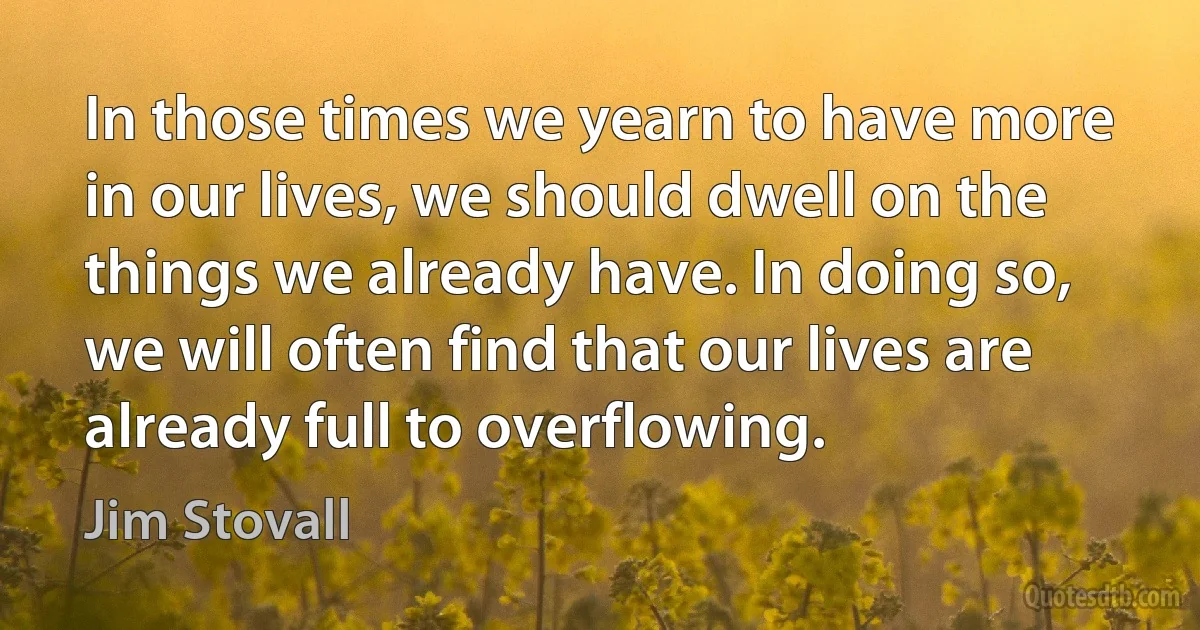Dwell Quotes - page 12
Upon the earth are animals and men, some in a middle region, others dwelling about the air as we dwell about the sea; others in islands which the air flows round, near the continent; and in a word, the air is used by them as the water and the sea are by us, and the ether is to them as the air is to us. Moreover, the temperament of their seasons is such that they have no disease, and live much longer than we do, and have sight and hearing and smell, and all the other senses, in far greater perfection, in the same degree that air is purer than water or the ether than air. Also they have temples and sacred places in which the gods really dwell, and they hear their voices and receive their answers and are conscious of them and hold converse with them, and they see the sun, moon, and stars as they really are, and their other blessedness is of a piece with this.

Socrates
If we would taste God, and feel in ourselves Eternal Life above all things, We must go forth into God with a faith that is far above our reason, And there dwell, simple, idle, without image, Lifted up by love into the Unwalled Bareness of our intelligence. For when we go out from ourselves in love, and die to all observances in ignorance and darkness, Then we are made complete, And transfigured by the Eternal Word, Image of the Father. And in this emptiness of spirit we receive the Incomprehensible Light, Which enfolds and penetrates us as air is penetrated by the light of the sun; And this Light is nought else but a fathomless gazing and seeing. What we are, that we gaze at; and what we gaze at, that we are. For our thought, our life, our being, are lifted up in simplicity, And united with the Truth, that is God. Therefore in this simple gazing we are one life and one spirit with God
-And this I call the seeing life.

John Ruysbroeck
I dreamed a place where I have come to dwell
Cold Mountain says it all
Monkeys scream, the valley fog is cold
My door blends with the color of the peaks
I gather leaves and thatch a hut among the pines
Dig a pond and lead a trickle from the brook
Long ago I left the world behind
Eating ferns I pass the years in peace.

Hanshan
If you want a peaceful place to dwell
Cold Mountain is guaranteed forever
A light wind blows softly in the pines
The sound is good when you are close
One old man sits beneath the trees
Reading Lao Tzu and Huang Ti, mumbling
I could not find the world if I searched ten years
I've forgotten the road by which I came.

Hanshan
What to leave out is the first thing the artist has to decide; a painter who "held the mirror up to nature” would spend his life on the leaves of one landscape. The work of art's fluctuating and idiosyncratic threshold of attention-the great things disregarded, the small things seized and dwelt on-is as much of a signature as anything in it.

Randall Jarrell
Your task as a student of human nature is to recognize and examine the dark side of your character. Once subjected to conscious scrutiny, it loses its destructive power. If you can learn to detect the signs of it in yourself (see the following sections for help on this), you can channel this darker energy into productive activity. You can turn your neediness and vulnerability into empathy. You can channel your aggressive impulses into worthwhile causes and into your work. You can admit your ambitions, your desires for power, and not act so guiltily and stealthily. You can monitor your suspicious tendencies and the projection of your own negative emotions onto others. You can see that selfish and harmful impulses dwell within you as well, that you are not as angelic or strong as you imagine. With this awareness will come balance and greater tolerance for others.

Robert Greene
Another simple and powerful way to dissolve problems is not to dwell upon the outcome of your actions. Instead, learn to value each action (no matter how small or large), to do it with complete attention. Your joy and satisfaction comes from doing each action with a whole heart and mind. Results and consequences then take care of themselves. When you are not absorbed by concern for outcomes, how much anxiety can you ever have?

Brenda Shoshanna
The Toltec tradition tells us that we surrender a portion of our life force when we dwell on any unhealed wounding event from our past. The unprocessed emotions surrounding these events burden us and weigh heavily on our hearts. They must be dealt with if we want access to all of our vitality. Ultimately, what we will find is that forgiveness is the key to reclaiming all the life force locked in past hurt.

Debbie Ford
Asia is one. The Himalayas divide, only to accentuate, two mighty civilisations, the Chinese with its communism of Confucius, and the Indian with its individualism of the Vedas. But not even the snowy barriers can interrupt for one moment that broad expanse of love for the Ultimate and Universal, which is the common thought-inheritance of every Asiatic race, enabling them to produce all the great religions of the world, and distinguishing them from those maritime peoples of the Mediterranean and the Baltic, who love to dwell on the Particular, and to search out the means, not the end, of life.

Kakuzo Okakura



